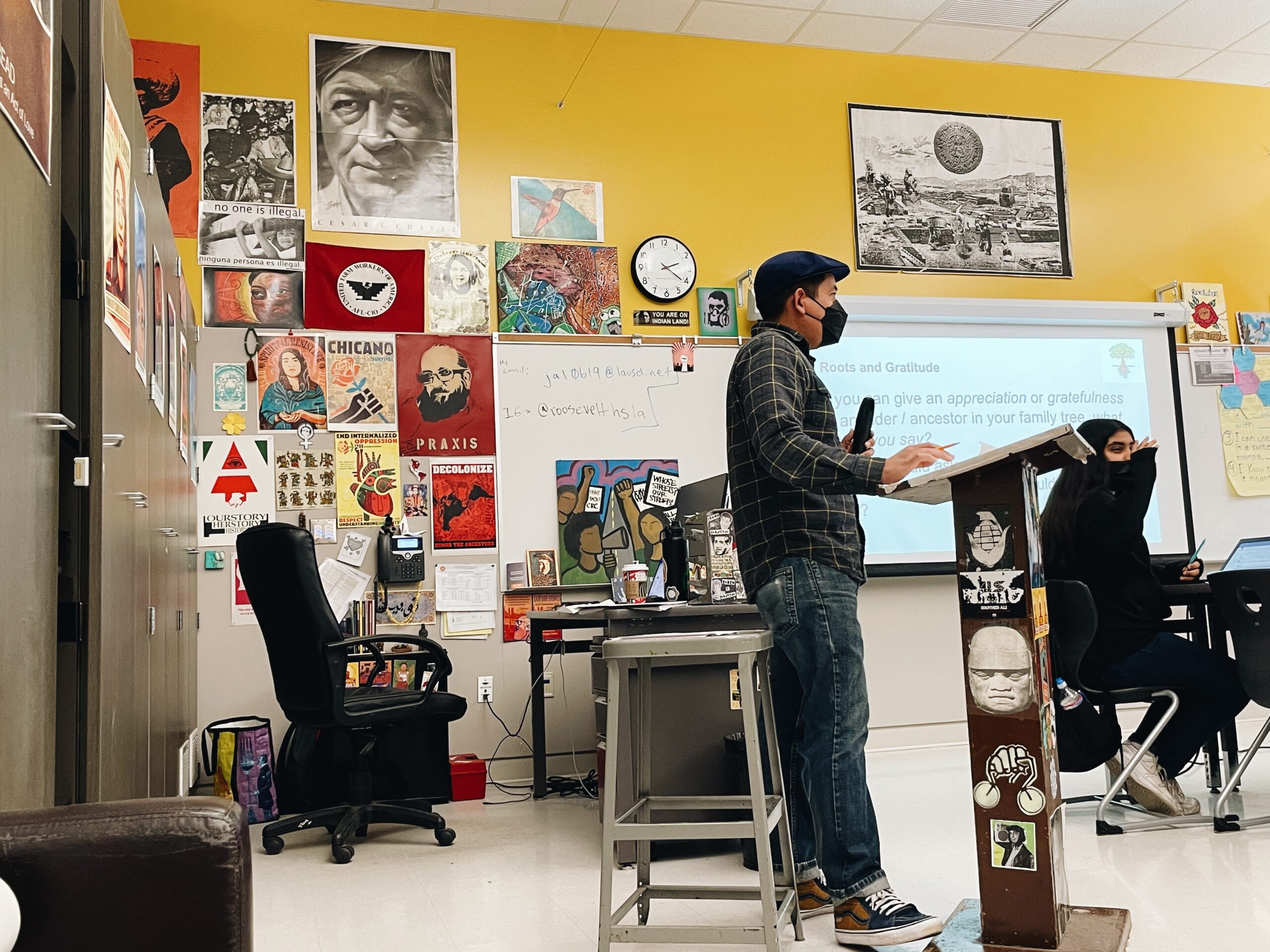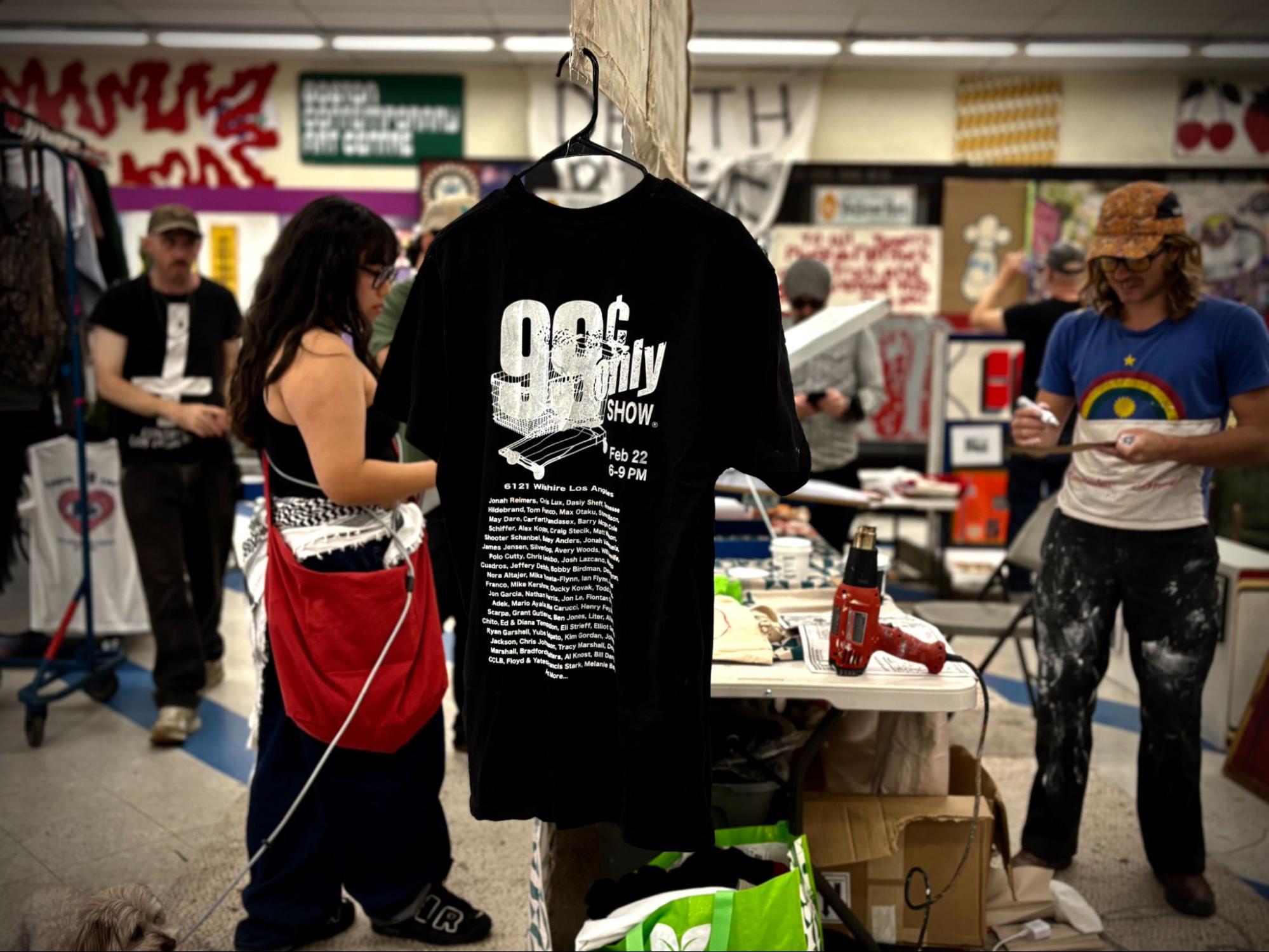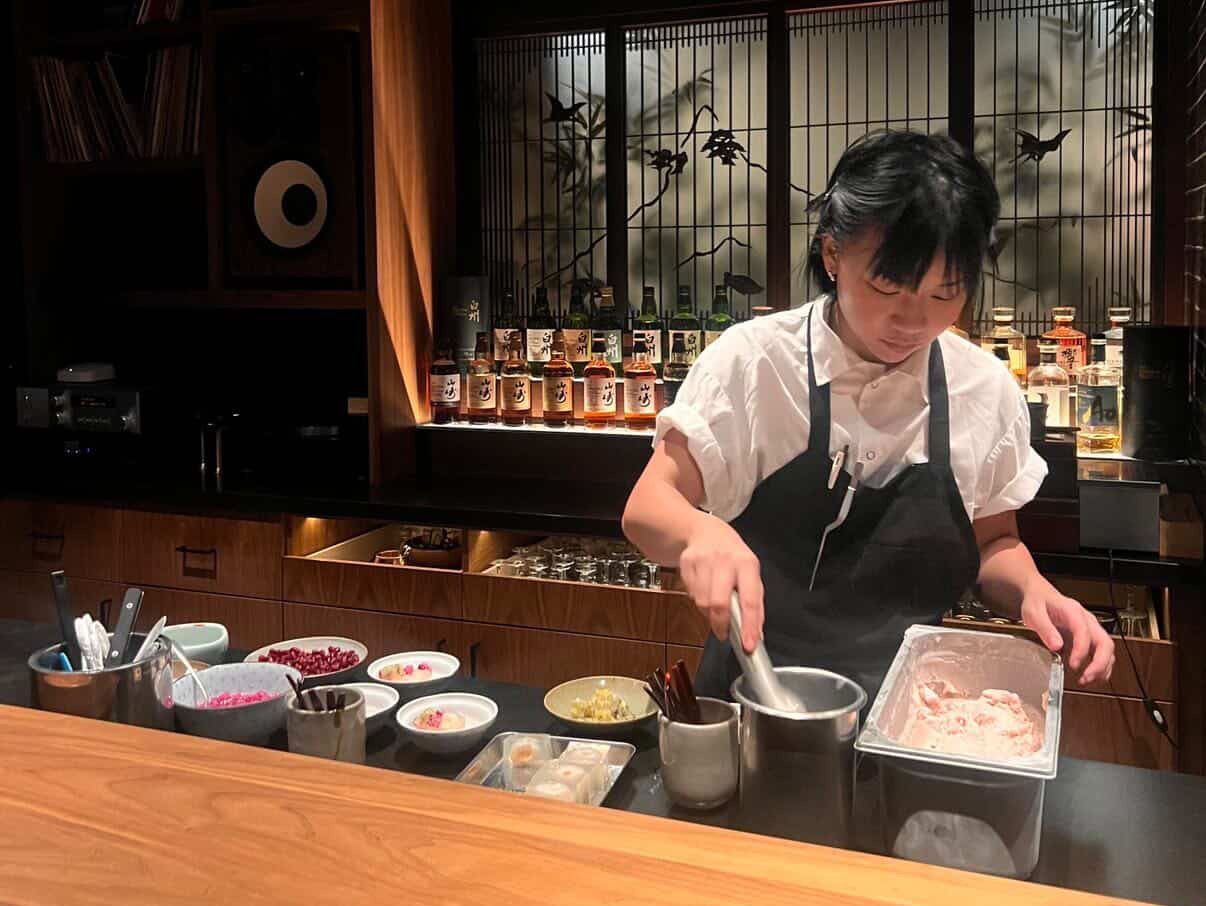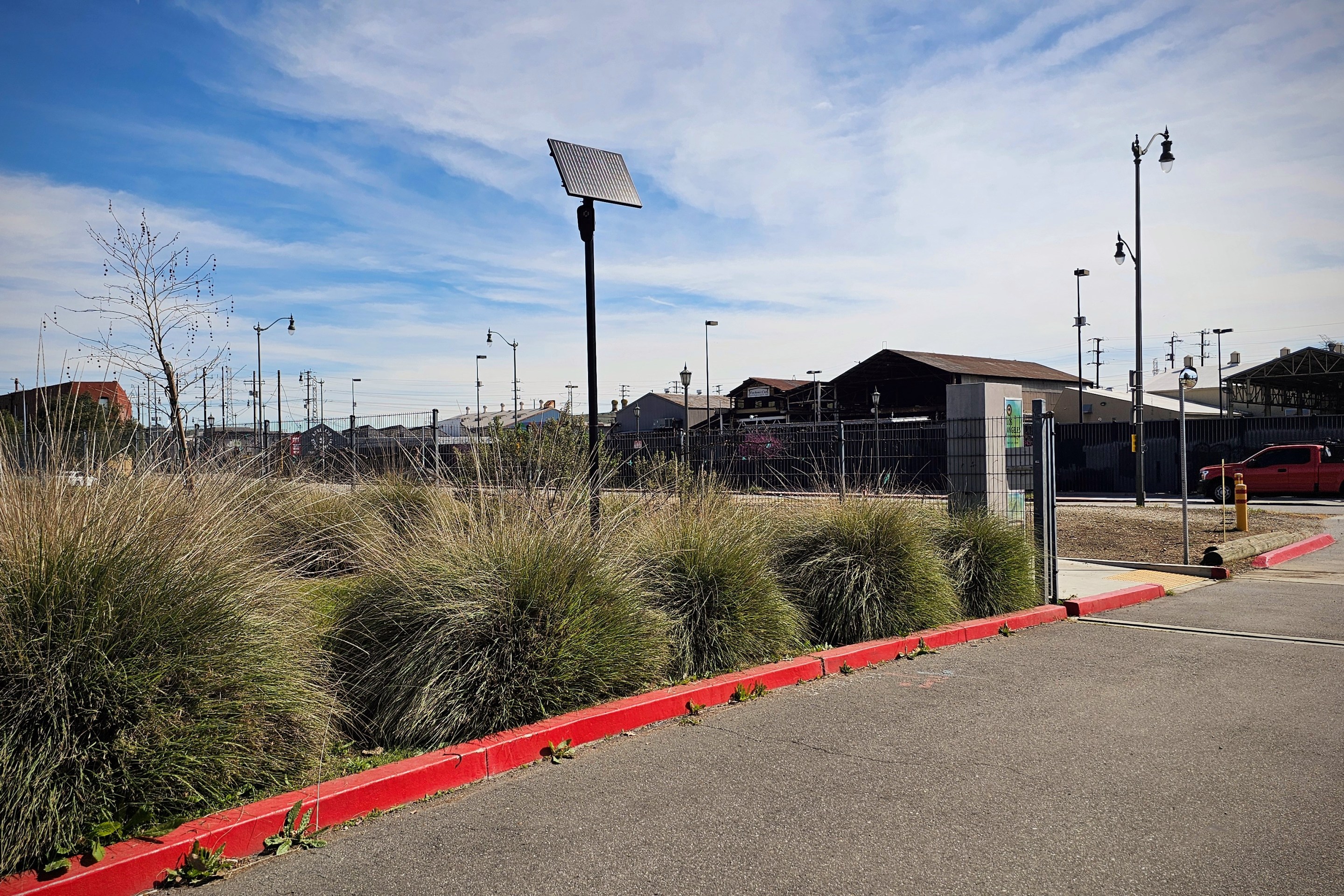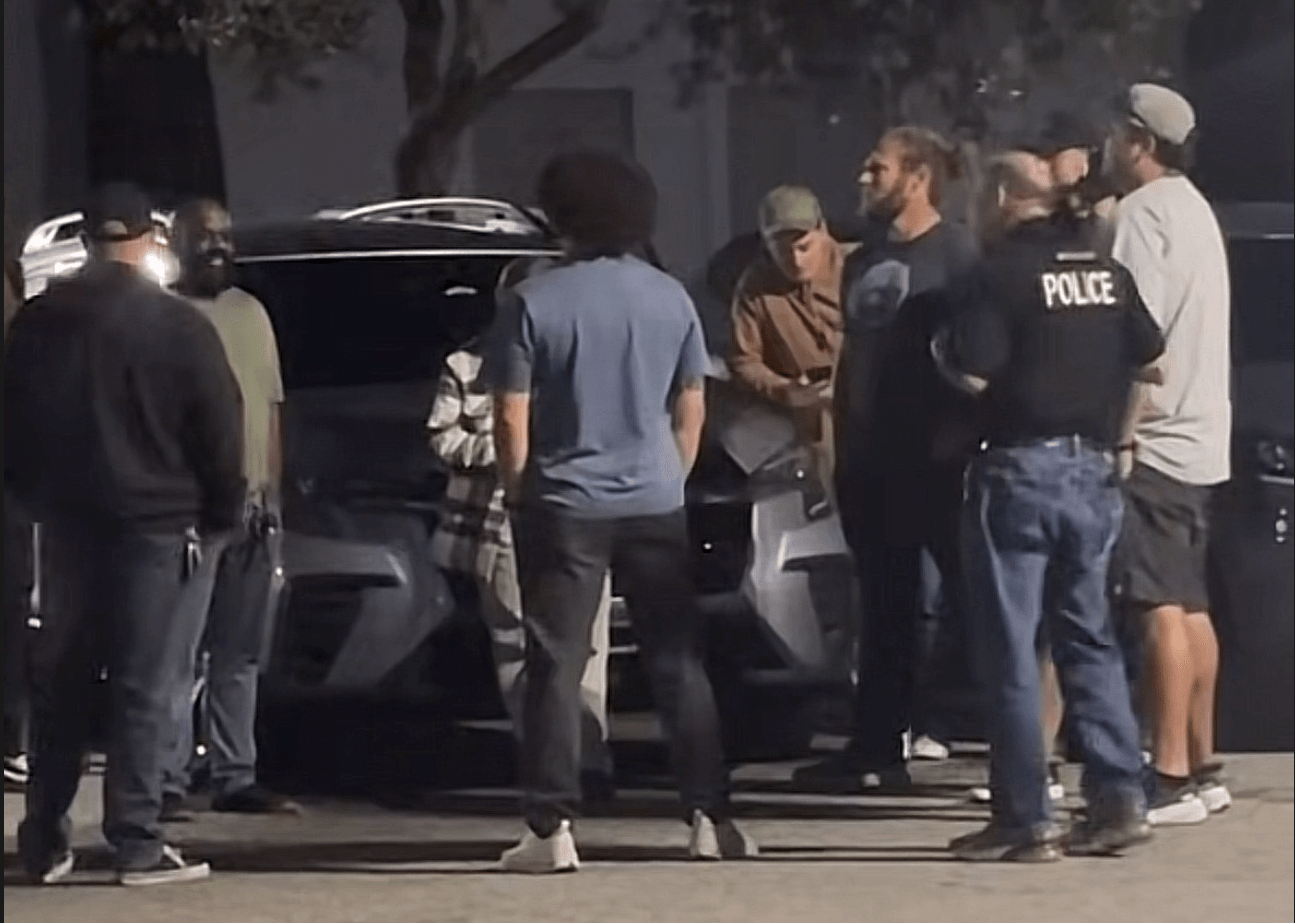Welcome to L.A. TACO’s new monthly education column, “The L.A. Public School Report.” If you have any story tips, send them to janette@lataco.com for consideration.
When you enter Mr. López’s 9th-grade ethnic studies class at Roosevelt High School, you are welcomed in by bright yellow walls filled with posters that read “Decolonize,” “No one is illegal” and a big “Boyle Heights” sign with a photo of a street vendor serving nieve (ice cream) underneath it. The class is a safe space where students can learn about their history and how it relates to their own lived experiences in the present.
For Jorge López, who is better known to students as “Mister,” or “Mr. López,” being able to teach students about their roots at a young age is almost like healing his inner child. Like many, López was not exposed to ethnic studies until college, and before college, he described much of his K-12 experience as “disempowering” and “dehumanizing.” For a long time, he described feeling ashamed of being a low-income student and having Brown skin. In school most of the subjects being discussed had nothing to do with identity or his own history, leaving little to no room for a young López to feel empowered.
“For me, taking ethnic studies in college just made me feel like I wish I had taken this earlier in my education journey, it was like this weight of oppression was lifted off my shoulders,” López said. “Now, I want my students to have what I didn't have, I want them to love the skin they are in, to love their culture, and embrace who they are. After all, that is part of what this class is about.”
López is one of many teachers who celebrated last year after California became the first state to require an ethnic studies class such as his for graduation. Gov. Newsom signed off on Assembly Bill 101 last October, and although the mandate will be applied to the graduating class of 2029-30, high schools will need to begin offering the course at the beginning of the 2025-26 school year. The signing of the bill is a win for teachers, students, and advocates like López, who for years have fought for ethnic studies, seeing as these classes often do a good job at reflecting their classrooms and communities.
At Roosevelt High School, the core themes for their ethnic studies classes are resistance, resilience, and re-imagination.
“It’s the study of one's history, one's culture, and worldview. It's a class where students have an opportunity to learn about their cultural, ethnic, and racial identities along with its history and not just their own but also the racial and ethnic identities of other communities of color in the US,” said López before class. “But also the goals of the course are for students to grow empowered and become aware of systems of oppression and for them to develop a critical lens.”
That Friday in his 4th-period ethnic studies class the topic of discussion was family trees, the question at hand: “If you could, what would you ask an ancestor or elder in your family tree?”
“I’d ask about all the types of struggles they went through, and ask about their food recipes because that's like me helping them preserve their culture and traditions because I’ll be able to pass that down to future generations,” said 9th grader, Emerie Banda in front of her class. “I’d also ask them if they were a part of any movement.”
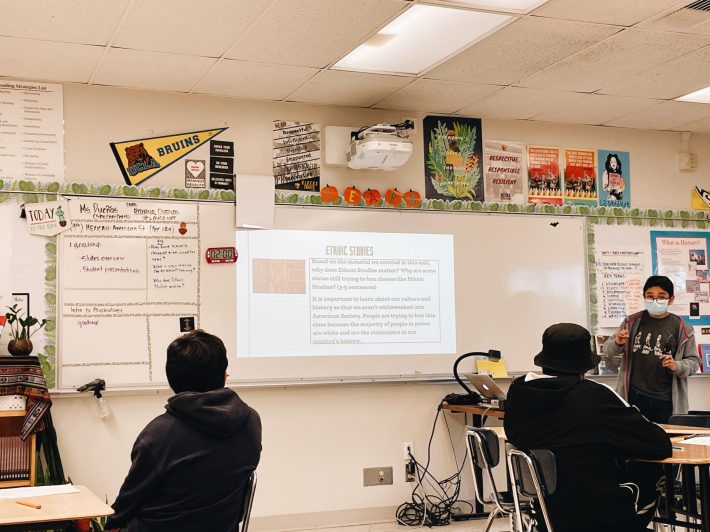
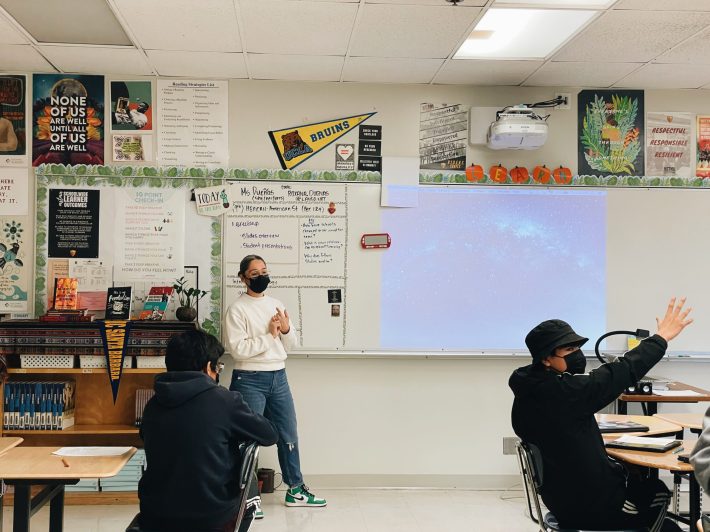
Movements like the 1968 East Los Angeles walk-outs where over 15,000 students from different high schools, including Roosevelt, marched as a call to action for civil rights and access to education for Latino youth. At that time teachers were said to have prohibited students from speaking Spanish, and in some schools, it is said staff would recommend Mexican American students' educational curriculum “meant to help students with mental disabilities.” And students were often discouraged from pursuing higher education.
It’s these types of subjects that students learn about when taking an ethnic studies class.
In Ms. Dueñas's class at Roosevelt's Math, Science & Technology Magnet Academy, students were finishing up a lesson focusing on the walk-outs. That Friday, each presented a slide show where they interviewed family members and talked about why they think ethnic studies is important.
“It’s one of my favorite classes and it's so important because I can connect with who I am but also learn more about the history of my culture in the US,” said Dueñas’s student Alejandro Santana tells L.A. TACO. “With this class so far you get to learn a lot about your culture, like the Chicano walkouts and it gives us some sort of pride. I know it makes me proud of my culture.”
Dueñas expressed how ethnic studies classes are crucial for students who come from communities of color but also those who don't. The class which some parents opposed last year describing it as “anti-white,” and some fearing “reverse racism” is actually the opposite. According to Dueñas, it’s more so an opportunity for students to learn more about each other. Not to spew hate.
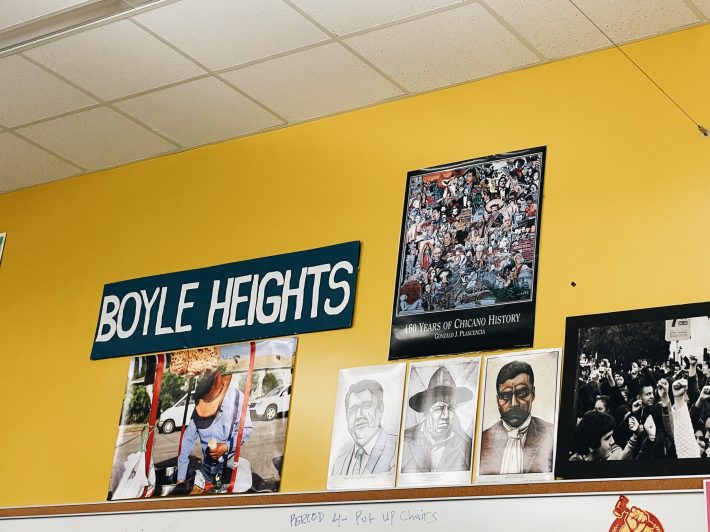
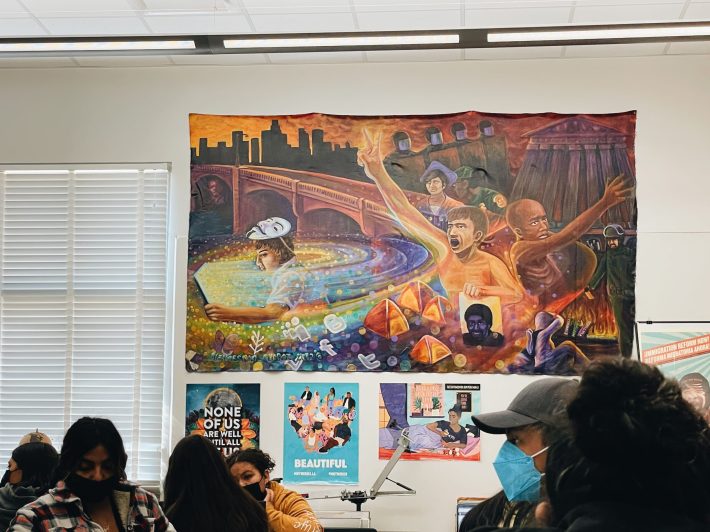
“For folk who don't really know what ethnic studies is about, it’s really about humanizing our young people, it’s an opportunity to have a space to kind of deep dive into self-exploration, about their identity, community and adding a critical lens to it,” she said. “It’s nothing to fear, it’s exploring the things that aren't working in our society and how can we look and draw from past social movements. It’s a moment for students to leave with a sense of criticality and also hope and joy that we can change things.”
Not only does it empower students but although the class is currently an elective it has proven to increase, attendance and engagement according to a study made in the San Francisco Unified School District. The study is not far off, teachers like Dueñas and López said their students over the years have expressed how ethnic studies is “not a class you ditch.”
If you asked any of their students which class is their favorite? With no hesitation, they’d tell you 4th period: ethnic studies.
“I love this class because it teaches me more about where I came from and more about how part of your identity is your culture. Most of all it’s a class where you can be open about yourself,” Banda said. “And I feel so open to new ideas, even when I’m sharing I feel special because there are so many classmates that understand or can relate to what I’m sharing.”
López and Roosevelt's ethnic studies program always look for new ways to engage students, one of the activities they have done to truly include present and past students in their class is the publishing of their own books. Every year the ethnic studies program publishes a collection of testimonies, narratives, stories, poetry, and student research of the community.
“It's completely transformational for a student because historically in our school system the role of education has been to disempower us, historically education has been dehumanizing to communities of color, and has pushed us to the margin of society,” López said. “But with these books they are the curriculum, students get to learn from the students before them and they get to see that their knowledge is valuable and that is empowering and humanizing.”
Although making ethnic studies a requirement for high school students is a step forward, teachers like López hope that it will eventually be something that is taught all throughout students' K-12 experience.
“My hope is that we grow ethnic studies, the graduation requirement is to take one semester only but we need for our school district to push schools to offer other sections. I hope that it grows so much that it begins to be taught earlier because there's a dire need for it.”
